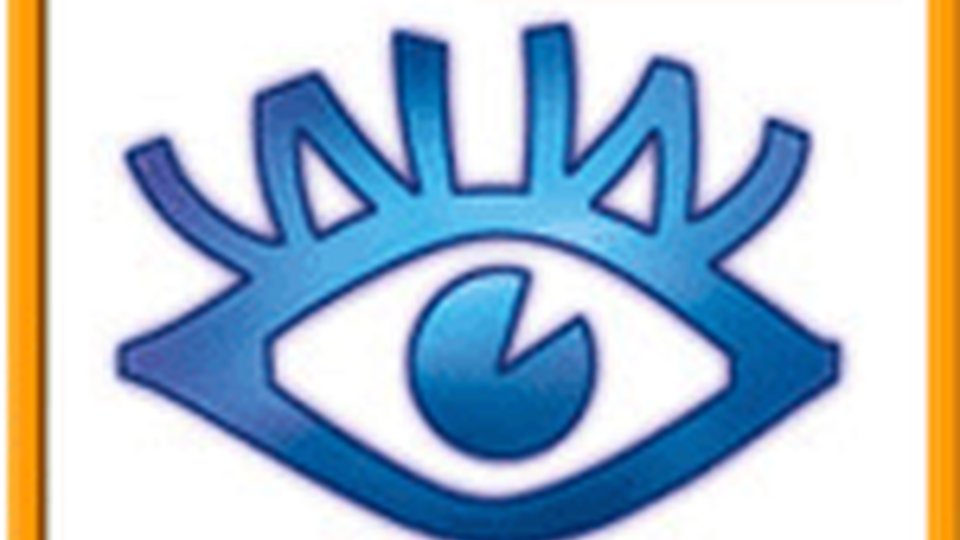Cash management will top banking, ATM to-do lists in 2009
The economic crunch has led to increased use of banknotes the world-over, and executives at Wincor Nixdorf say they expect the trend to continue into the near future.
February 1, 2009 by Tracy Kitten — Editor, AMC
Customer service and innovation in cash-management were the focus of Wincor World 2009. The annual banking and retail trade show hosted by Wincor Nixdorf AG near its base in Paderborn, Germany, continues to evolve from a hardware-focused show to one that highlights software and services.
The company's ability to provide a combined solution portfolio was the message senior executives wanted to get out to their bank customers, who this year were more heavily represented from developing global markets, such as Nigeria, China and parts of Latin America, than they have been in years past. And Wincor Nixdorf made a point to highlight new attendees from Ghana, Nepal, Pakistan, Venezuela and the Philippines.
"Over the next 12 months, I think we have a lot of work to do to build up our services offering in the U.S., Mexico and Brazil, where our business is growing," said Javier –Lopez-Bartolome, who overseas the Americas business for Wincor Nixdorf. "And we see more business coming, as the banking market throughout the Americas matures. A recent study shows that 70 million people in Latin America have moved from poverty to the middle class, and they will demand more access to their money as well as more traditional banking services. We see great opportunity there."
During his opening address, chief executive Eckard Heidloff said the global financial crisis is pushing financial institutions to change.
"Looking at the next three to four quarters, we will all have to focus more on customer service, and more than ever before, you will need to cope with your costs," Heidloff said.
That means a stronger emphasis on cash-recycling technology — for the teller and the ATM — remote ATM management, and a renewed interest in one-to-marketing solutions. It also means greater security, such as counterfeit-note detection, says Uwe Krause, Wincor Nixdorf's head of bank business marketing.
During Wincor World, Wincor Nixdorf highlighted all four of those attributes, emphasizing the cash-recycling ability of its ProCash 4000 series, which can share cash between ATMs and teller windows in a single branch.
Innovations simplify cash processes
The new ProCash 6400 automated teller safe allows cassettes to be swapped between deposit, cash-dispensing terminals and systems, and cash-recycling systems from the ProCash 4000 series. Thus, cassettes removed from ATMs can be used to replenish teller safes in branches. The practice reduces cash-handling costs, Krause says.
The ProCash 6500 automated teller safe is able to sort banknotes by their fitness and replaces cash-counting machines. The system also offers user support via a 5.7-inch touchscreen. When notes are rejected, the system shows on the touchscreen the reason for rejection as well as the notes' serial numbers.
Wincor Nixdorf took pride in its new solution for tracing cash deposits via serial numbers, which ultimately reduces the circulation of counterfeit notes.
The technology, being used by Germany's central bank, Deutsche Bundesbank, is expected soon to be released to the market.
"Tracking serial numbers of banknotes helps prevent acceptance of fraudulent banknotes," said Uwe Krause, head of marketing for Wincor Nixdorf's banking division.
In December 2006, Deutsche Bundesbank launched the Cash EDI cash-management optimization system for cash-flow tracking — a system it designed with Wincor Nixdorf after some €6 million simply disappeared.
"It was a major problem for the central bank," Deutsche Bundesbank's Jurgen Niemann said. "A CIT driver stole the money."
Niemann says by 2030 all financial institutions in Germany will be required to use the serial-tracking system.
Before Wincor and the central bank developed the tracing technology, when banknotes were classified as suspect forgeries, they were sent back to the central bank for review. Notes were then returned to the branch, where deposit information is stored locally.
Under the new system, note data and information is saved in a central database, so notes can be traced via serial numbers automatically. The person who deposited a forgery can be identified centrally on the basis of the banknote's serial number.
ATMs
Today Wincor Nixdorf holds 20 percent of the global ATM market share, manufacturing more than 70,000 ATMs annually. The company entered the ATM business in 1985, relatively late by NCR Corp. and Diebold Inc. standards. But by 1994, the company ranked No. 12 among ATM manufacturers, putting out 15,000 units that year. At that time, however, it held only 3 percent of the market share.
Last year, Wincor Nixdorf ascended from the world's No. 3 ATM provider to No. 2. Now the company says it's focusing on the same sort of ascent in the retail, software and servicing sectors.
Wincor expands 'Professional Services'
Wincor Nixdorf's goal is to provide FIs with added value through solutions that are customized. Wincor has 700 employees worldwide who are working on software development and professional services for banks and credit unions.
"In order to enable further growth, we're looking all over the world for additional staff in a variety of areas — banking consultants, project managers and software engineers," said Karl-Heinz Kern, who is responsible for the company's consulting business with banks.
The Professional Services organization forms the basis for the expansion of Wincor Nixdorf's business, Kern says.
"We address the entire bank branch solution spectrum and are already working in projects that are more typical of the back-office processes of financial institutions."
The PC/E (ProClassic/Enterprise) Retail Banking Solution Suite comprises applications for self-service, sales and service, cash management, mobile banking, and security.
Over the last three years, Wincor has made great strides toward building its servicing business, says Kerstin Zilla, marketing direction of Wincor Nixdorf's services division.
"Three years ago was a turning point," she said. "It was a time when we put our business in place to provide services in markets throughout the world. Today we have 34 customer-care centers worldwide."
The global economic crunch may benefit the services side of the business, in retail and banking, Zilla says.
"We cannot foresee all of the consequences of the economic crisis today, but it is critical for retailers and banks to reduce costs and improve efficiency," she said. "They really want to know what the cost reductions are, and that is really the task of the IT company."
Wincor Nixdorf's competitors are focusing on the servicing side of the business, too. NCR and Diebold are both advancing their cash-handling and servicing offers; Diebold last year announced the launch of a newly developed corporate division focused on service. What makes Wincor unique in its cash-management and servicing push is that it is not focusing solely on FIs — it's focusing quite a bit of its attention on retail.
A cliché with value?
Topping the list of Wincor Nixdorf services and solutions is cash management.
As cash use increases, so too does the need to manage it. Heidloff says research suggests that circulation and production of euros continually increases, despite notions that the European Union is moving toward a cashless society.
Heidloff says the world has three times more euros today than it did when the euro was first issued. And Gerben van Wijk, marketing director of Currency Research in the Netherlands, says in the last four months of 2008, use of cash in the EU has nearly tripled — suggesting that the economic crunch continues to lead to greater circulation and use of cash.
So, is cash still the king? According to research from the ATM Industry Association, Retail Banking Research Ltd. and Currency Research it is.
During his presentation, "Cash is king, but will it remain," Wijk said the use of cash, especially in developing markets, continues to rise. As new markets move more consumers to banking services, they're use of cash increases, thus creating a greater need for retailers and bankers to manage their cash processes.
But Wijk warned that new technologies, such as mobile payments, could soon overtake the use of cash among this currently so-called cash-preferred segment. Wijk says the payments industry and those who provide services to it need to be fluid and adaptable to change.
Branch life-cycle
With continual changes in market requirements, the differing expectations of consumers, the growing importance of multiple delivery channels and increasing competition has pushed FIs to reposition their branch strategies.
During Wincor World, Wincor Nixdorf showed off its WIN@Branch concept as a way FIs could reinvent themselves and focus on growing business opportunities, such as in-branch sales and in-branch marketing.
One focal point for Wincor is in the area of branch analysis and consulting, and Wincor's Branch Optimizer is lauded for helping FIs determine ideal processes in terms of cost and equipment. The Optimizer then verifies those processes via simulations. Requirements for staff levels and self-service systems can be tailored to transaction volume at specific locations for shorter lines and wait times for customers and members.
Implementation of efficient sales strategies is also part of that analysis, and an effective strategy can be created by relieving branch employees of routine activities. Much of that strategy revolves around branch design, which considers consumer privacy, security, placement of self-service terminals and ATMs, ensuring an open branch design, lighting, and "emotional-banking" psychology.
"It all comes back to process," Krause said. "Seventy to 80 percent of the banks in the U.K. are servicing their branches manually. In the U.S., it's probably higher. So I think the next 12 months we will be more focused on processes and how to automate those processes. We will focus more on what works for the teller, and how tying the teller with the self-service channel can improve processes and optimize technology.
Included In This Story
As a global technology leader and innovative services provider, Diebold Nixdorf delivers the solutions that enable financial institutions to improve efficiencies, protect assets and better serve consumers.
Request Info
Learn More
 ChatGPT
ChatGPT Grok
Grok Perplexity
Perplexity Claude
Claude












